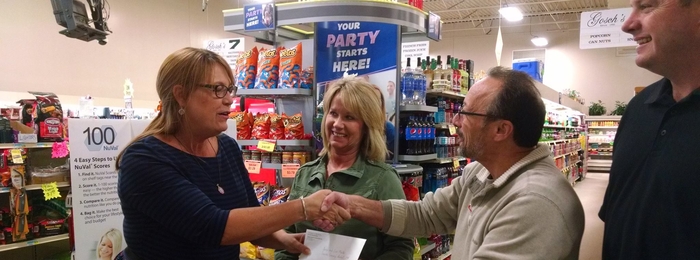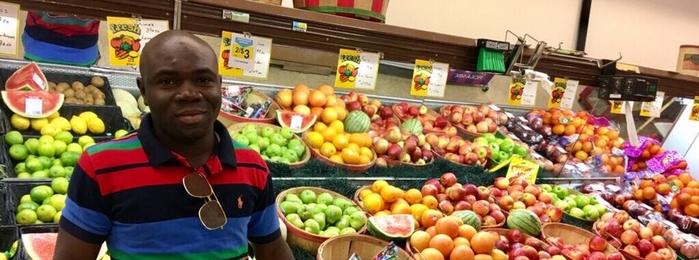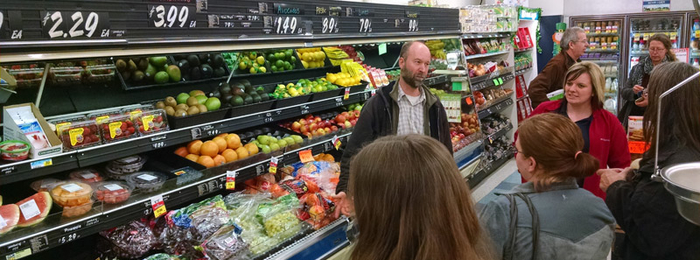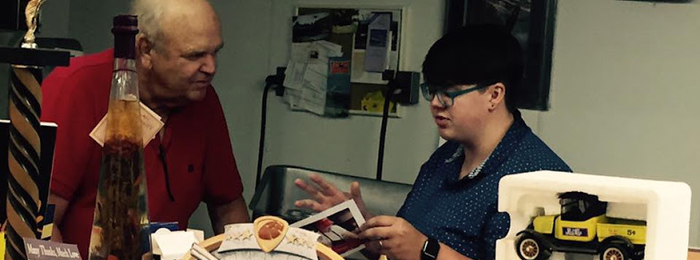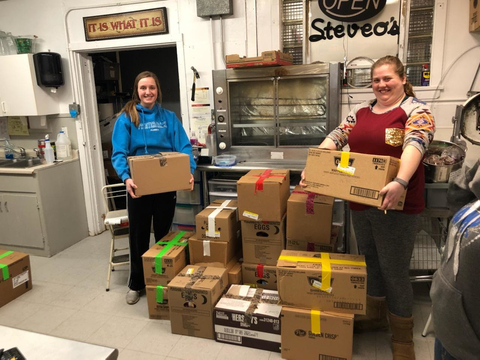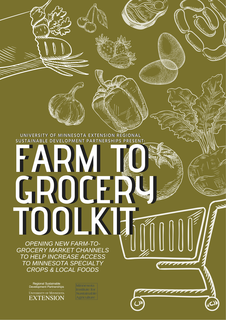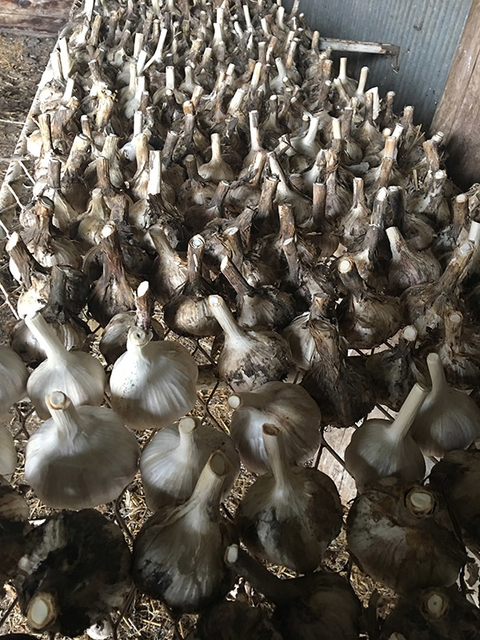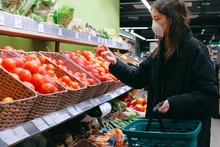Rural grocery stores
Rural grocery stores: the heart of rural communities
Small-town grocery stores are the heart of rural communities, yet many struggle with competition from larger chain stores, a shrinking customer base, and changing customer demands for fresh produce and greater variety. The University of Minnesota Extension Regional Sustainable Development Partnerships (RSDP) support rural grocers affected by these issues through a number of resources and projects. We offer fresh produce handling guides for small retailers, information on how to work with farmers to sell locally grown produce, and in-store produce handling training and education. We also conduct research on innovative ways to help farmers sell local produce through rural grocers. These projects address needs identified in our 2015 and 2019 statewide Rural Grocery Survey and through our face-to-face conversations with rural grocery owners throughout Minnesota.
Projects and resources
Minnesota rural grocery survey report 2019 - 2020
Rural grocery stores are anchor businesses in communities of 2,500 or fewer residents that provide a full range of fresh, frozen and shelf-stable foods. To gain a deeper understanding about this sector, RSDP worked with the UMN Center for Survey Research to conduct a statewide survey of rural grocers between May and October 2019. This survey was designed to better understand rural grocers’ business conditions. Some topics of the responses were store characteristics, competition, locally grown food, business motivations, collaborative relationships and infrastructure.
Minnesota rural grocery survey report 2015
RSDP conducted the 2015 Rural Grocery Store Survey to understand the needs and concerns of rural grocery store owners in Minnesota. This project was funded by AgCountry Farm Credit Services, AgriBank, AgStar Financial Services, the Minnesota Department of Agriculture and United FCS. Many organizations and individuals provided feedback on the survey design, including Extension Community Economics, the Federal Reserve Bank of Minneapolis, Wilder Research, the Minnesota Department of Health, the Minnesota Grocery Access Task Force Finance Subcommittee, the Minnesota Food Charter, the Clean Energy Resource Teams, the Center for Rural Policy and Development, and two grocery wholesale businesses. Fact sheets presenting survey results are provided below.
Our backhaul project is part of an ongoing commitment to build connections between Minnesota’s small farms and rural grocers. Small farms located near rural grocery stores have the potential to be an additional source of healthy and tasty fresh produce.
Potential store benefits of working with a local farmer include securing fresh product, meeting customer interest in locally grown options, and supporting another community business. Potential farmer benefits include increasing marketing opportunities and building their capacity to provide nutritious foods to the community. Food hubs may also be a good fit for local farmers to supply rural grocery stores in their region. The following case studies conducted for RSDP provide information on successes and challenges of the farm-to-grocery model from a farmer, grocer and food hub perspective.
Farm to grocery provides opportunities for increased sales and market access. Diversified supply chains, such as farm to grocery, are important for a resilient food system. This Farm to Grocery Toolkit is a resource for farmers and grocers to help facilitate the sale of farm-grown products to grocery stores, particularly those stores in rural Minnesota. The toolkit covers legality and methods of selling and buying local foods, includes a legal product checklist and various templates (labeling local foods, farm feature, invoicing, margin calculator), provides tips on building a successful business relationship, and guidance on processing local foods for sale. Funding for this project was made possible through partnership with the Minnesota Institute for Sustainable Agriculture (MISA) and funding from a MN Department of Agriculture Specialty Crop Block Grant.
Research engaging stakeholders from across the food supply chain.
RSDP is currently working on a U.S. Department of Agriculture (USDA) grant titled "Connecting Small and Medium-Sized Farms to Existing Wholesale Markets through Backhauling from Rural Grocery Stores," engaging stakeholders from across the food supply chain including producers, grocers, wholesalers, regulators, and University of Minnesota research and Extension.
- Focus: This project aims to develop, and pilots the feasibility of, a new model for small and medium-sized crop producers to access wholesale markets. The farm-to-rural-grocery-to-wholesale (F2G2W) model uses the existing network of rural grocery stores and their wholesale suppliers to backhaul locally grown produce on emptied wholesale trucks for redistribution through wholesale markets.
- Long-term goal: Small- and medium-sized farms increase their viability, competitiveness and sustainability through access to profitable wholesale markets via the existing network of rural grocery stores and wholesale suppliers.
- Research objectives: To determine the economic, logistic and regulatory feasibility of the F2G2W model through a pilot with garlic, organic potatoes and strawberries during the project period.
- Extension objectives: To translate, train, convene and disseminate findings based on research results to producers and grocers. Once tested, this model has the potential for replication in rural areas throughout the country.
Farm-to-rural-grocery-to-wholesale project information
Farm-to-rural-grocery-to-wholesale backhaul project regulatory considerations
Project partners
- Lisa Baker, Baker's Acres
- Connie Carlson, New Crops, RSDP
- Kathy Draeger, Statewide Director, RSDP
- Chris Fields, Director of Processing and Compliance, Russ Davis
- Duke Harrison, Warehouse Operations, Mason Brothers
- Annalisa Hultberg, Extension Educator, On Farm Safety
- Pat Miller, Vice President, Russ Davis
- Ren Olive, Project Manager, Sustainable Agriculture and Food Systems, RSDP
- Les Olson, Owner, Big Stone Garlic
- Dojin Park, Graduate Research Assistant
- Ryan Pesch, Extension Educator, Community Economics
- Hikaru Peterson, UMN Professor of Applied Economics
- Greg Schweser, Director, Sustainable Agriculture and Food Systems, RSDP
- Cindy Tong, Professor and Extension Post Harvest Horticulturist
- Molly Zins, Executive Director, Central RSDP
The University of Minnesota Extension Regional Sustainable Development Partnerships (RSDP) partnered with the Minnesota Department of Agriculture (MDA), Agricultural Utilization Research Institute (AURI), farmers, community leaders, business owners and members of the Muslim and Jewish faith communities to explore dietary and processing requirements associated with halal and kosher meat consumption and production, and opportunities for market entry in Minnesota. The report found that demand for Minnesota-produced halal and kosher meats currently exceeds supply. Check out the full report.
This set of case studies is part of efforts by the Regional Sustainable Development Partnership (RSDP), at the University of Minnesota Extension, to support rural food retailers as they struggle to survive in a challenging economic climate. New Ulm Community Market and Cooperative initiated this specific study as the new store is exploring options for growth. The objective of this study was to use interviews with small and cooperative food retailers to obtain a better understanding of the resources, strategies, tools, and techniques that support small food retailers in staying viable and sustainable. The final report provides details that allow food retailers to assess each set of practices for potential replicability.
The quality and appeal of fresh produce can affect a customer’s impression of the entire grocery store. Use these resources for tips on how to best store and market produce in a way that appeals to customers and prevents food waste.
- VIDEO: Produce handling in grocery stores
- Storing and handling fresh produce
- Quick reference guide - print and display in employee area
- Produce merchandising techniques
- High maintenance produce
The University of Minnesota Extension Regional Sustainable Development Partnerships and Family Development have worked with community partners to develop guidance on 14-day meal kits that can be deployed from rural grocery stores to community members who need to isolate themselves in the face of COVID-19.
The Rural Energy for America Program (REAP) from the USDA Office of Rural Development is a great opportunity for rural grocers and small businesses to save energy dollars with efficient equipment or add renewable energy systems. This competitive grant and loan program is directed specifically at rural communities in Minnesota and throughout the Midwest.
Grants can cover up to 25 percent of eligible project costs, and loans can cover up to 75 percent of eligible project costs. Applications are scored competitively in batches. Projects requesting grants of up to $20,000 ($80,000 or less total project size) can fill out a short-form application. The short-form application accepts energy savings estimates quoted by equipment vendors to streamline the application.
If you are thinking of equipment upgrades, such as new refrigeration, compressors, lighting, cooler doors or even solar panels, please consider this program. For more case studies, cheat sheets and resources on how to apply, check out Clean Energy Resource Team resources. You can also contact Joel Haskard, Co-director, at haska004@umn.edu to discuss program eligibility and project details, and receive assistance with the application.
- Grant Writing Webinar for Energy Efficiency Equipment Programs
- National Rural Grocery Summit
- Produce Handling, Storage, and Marketing Presentation (Ryan Pesch, University of Minnesota Extension, and Matt Olson, Mississippi Market)
- Pierz Eats Produce Campaign (Molly Zins, Central RSDP)
- Good Food Access Program (Minnesota Department of Agriculture)
- Kansas State Rural Grocery Initiative


